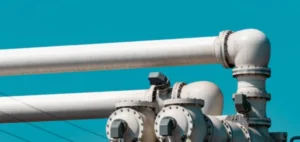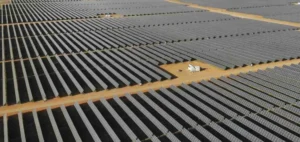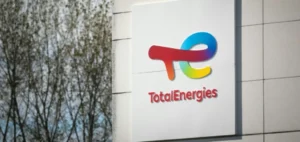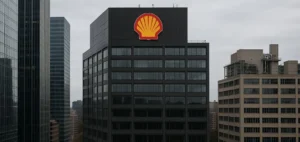Emptied and already pierced on several sides, gas tank number 206 at the TotalEnergies plant in Grandpuits is now just waiting to be dismantled as part of the conversion of the refinery in Seine-et-Marne at a cost of more than 500 million euros.
“There were four more, who have already left,” says site manager Michiel Van Raebroeckx. “This one is next.”
From a former oil facility, several large pipes lie disconnected, with small yellow and red signs: “no entry, danger”.
“There, it is the part which clears”, describes to the AFP the person in charge during a visit of this gigantic site where takes shape, according to TotalEnergies, the “greener” future of the oil giant.
As part of a conversion plan announced in September 2020, Grandpuits, which was the only refinery in the Ile-de-France region, is to become a biorefinery by 2025, producing fuels from recycled cooking oil rather than petroleum.
Fossil production has been shut down since 2021, and a total of 14 hydrocarbon reservoirs, as well as two production units, have already disappeared.
This is a new step in the conversion of the French group’s refining activities.
The first emblematic project, the site of La Mède (Bouches-du-Rhône) was transformed several years ago into a “biorefinery”.
“We’re mourning the loss of refining,” but the project is “exemplary” for “the future of TotalEnergies,” says the head of Grandpuits.
Hydrogen
About 60 people are working on the dismantling, and up to 1,000 jobs are expected on the different sites: the biorefinery, a plastic recycling unit, and a site for the production of biodegradable and recyclable plastic made from cereals.
In addition, a 25-hectare photovoltaic plant has already been opened and a hydrogen production unit will be built by Air Liquide, for an investment of 130 million euros announced on Tuesday.
The approximately 20,000 tons of hydrogen produced per year will be used primarily to manufacture “SAF”, a “sustainable” aircraft fuel with a lower carbon footprint than kerosene.
The biorefinery will produce 400,000 tons of different fuels, including 210,000 tons of “SAF”.
Hydrogen will not be “green”: its carbon footprint is not zero.
It will be made from steam and gas: natural gas on the one hand, and from the biorefinery on the other.
Some 60% of the CO2 emissions from the production of hydrogen, 110,000 tons per year, will be “captured” to reuse the carbon in “agri-food and industrial applications”.
The volume of CO2 not emitted represents one third of the total emissions of the Grandpuits site once it is fully operational. But this is only a tiny proportion of the TotalEnergies group’s total emissions, which it estimates at more than 400 million tons of CO2 equivalent per year worldwide, a figure that Greenpeace believes is underestimated.
Patrick Pouyanné’s group is also continuing to develop hydrocarbon projects around the world, eager to meet a demand that continues to grow, particularly for gas.
Surgical dismantling
The reorientation of the site will result in the elimination of 150 out of 400 jobs, including early retirement and “internal mobility” and therefore “no redundancies”, according to TotalEnergies.
The project caused a stir and led to a 40-day strike. It has since materialized.
On a former parking lot, excavators are busy laying the foundation for plastic recycling – “the most advanced project,” according to Raebroeckx.
Work is less advanced on the future site of the “SAF” refinery, which until recently housed a crucial part – the reduction of sulfur content – of the manufacture of fossil fuels.
Workers in yellow waterproof jackets set up a crane for the next milestone in the transformation: replacing the reactor, at the heart of the production unit, where the chemical reaction will take place.
Here, “we are not doing a complete dismantling but a surgical dismantling” to “reuse and adapt” elements of the old installation, notes Raebroeckx.
Gradually, the silhouette of the gigantic site will change, but not completely: out of nine gas reservoir spheres, four will remain. And about twenty of the 80 fuel tanks.






















